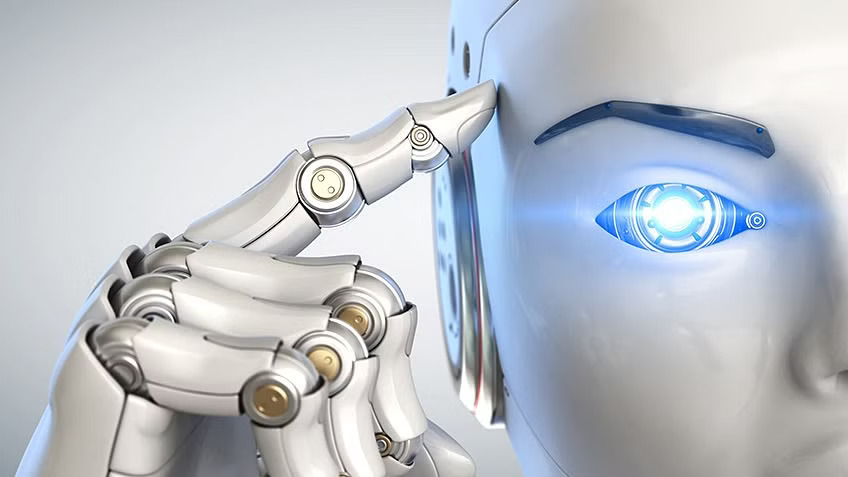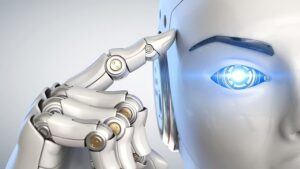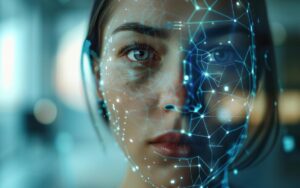Machine learning (ML) and artificial intelligence (AI) are at the cutting edge of today’s technological advances and are changing how we live and do business. Here are just some of the places where computers are making decisions or helping our decision-making process:
- Fraud detection: Banks and other financial institutions employ machine learning models to detect and prevent fraud using historical financial data.
- Self-driving vehicles: AI is being used to teach cars how to drive and make split-second decisions without harming human passengers or pedestrians.
- Personal assistants: Tools like Siri, Alexa, and Google Assistant can understand the spoken word in dozens of languages, as well as answer our questions and order products for us.
- Facial recognition: Law enforcement agencies and other organizations use this technology to identify people, even in large crowds.
With all these things and more happening in AI, the demand for AI and machine learning engineers has never been higher. So if you’re wondering how to start a career in AI and machine learning, you might be headed to a future where you are not only in demand but also have a chance to work on your choice of technologies that are changing the world.
A Day in the Life of an Artificial Intelligence and Machine Learning Professional
There has been no better time to start a career in AI or become a machine learning engineer, but you may be wondering what a career in AI and machine learning might look like. A typical day for AI professionals will look different depending on their roles or the industry they work in, but here is a general overview.
The day might start with checking emails and chats for important messages requiring immediate attention. Once that is done and any fires have been put out, the machine learning engineer might review some data sets that show potential, check how training is going with a machine learning model, or read recent machine learning research papers to find new potential tactics.
At some point, usually in the morning, the engineer will meet with other team members in a stand-up or scrum where they discuss projects on which they have been working, any problems they are having and discoveries they have made, and what they will work on for the rest of the day.
Most of the rest of the day might be spent in heads-down work building machine learning algorithms and working with data. Or, there may be meetings with stakeholders to discuss business requirements and how to meet them or with team members to discuss the best way to architect a solution.
A career in AI and machine learning can be exciting and rewarding, and while this “day in the life” might be how most start, there are plenty of opportunities for growth and development. So, while you are asking how to start a career in AI and machine learning, you might also want to ask where the career will take you.
Also Read: Are Machine Learning and Data Science the Same?
Types of AI and Machine Learning Careers
A wide range of industries is just beginning to use AI and machine learning. Some haven’t even begun, but they will get there. Forbes expects AI jobs to increase by 71 percent in the next five years. The AI job market is just at its genesis, and while these job titles may change in the future, here are some of the types of jobs you can get in the machine learning field:
- Machine learning engineers: They work between the world of software engineering and data science and bring a data scientist’s ideas to life.
- Data scientists: They collect, analyze, and interpret large, complex data sets and use predictive analytics and AI to design machine learning solutions.
- Business intelligence (BI) developers: They use business data to identify trends and predict outcomes so businesses can make well-informed decisions.
- Big data engineers: These engineers plan and develop the data platforms from which machine learning models acquire their data.
- Research scientists: They work in an academic environment and develop new types of machine learning and new practical applications for it.
- Robotics engineers: They develop robots and know mechanical engineering and AI.
- NLP engineers: They work on voice assistants, document processing, and speech recognition tools and specialize in building applications that allow computers to understand human language in both written and spoken form.
Future Scope of Artificial Intelligence
What you might work on in a machine learning career has even more variety than all the possible job titles in the AI industry. We have already covered fraud detection, self-driving vehicles, personal assistants, and facial recognition, but there are some places where AI is just getting a foothold. So, along with how to start a career in AI and machine learning, another question you should ask is: What is the possible future of my machine learning career?
Here are some places that AI and machine learning are headed in the future:
- Personalized medicine: AI has the potential to revolutionize healthcare by allowing doctors to tailor treatments to individual patients based on their unique genetic makeup and medical history. A patient’s complete history, DNA makeup, and other data might be fed to machine learning algorithms to identify patterns and develop personalized treatment plans that are more effective and less invasive than current treatments.
- Climate modeling: Machine learning might be used to develop climate models that predict the impact of climate change on different regions of the world. This would help policymakers make more informed decisions about mitigating the effects of climate change and reducing greenhouse gas emissions.
- Space exploration: AI may help scientists explore and understand the universe better. Machine learning models could use the data from telescopes and other space-based instruments to identify new planets, galaxies, and other celestial objects.
- Foreign relations: AI and machine learning may be used to help governments understand and respond to complex international issues. Information on global trends, political movements, and economic indicators would be the raw data machine learning applications use to identify potential sources of conflict and opportunities for cooperation.
- Scientific research: AI and machine learning might accelerate scientific research by allowing scientists to analyze large amounts of data more quickly and accurately. The models they develop could identify patterns and relationships in data from experiments and simulations and help scientists develop new theories and hypotheses.
Also Read: Machinе Lеarning Algorithms: A Beginner’s Guidе
Steps to Start a Career in AI and Machine Learning
Now that you know what a career in machine learning and AI might look like now and in the future, let’s finally answer the question of how to start a career in AI and machine learning. While you can take many paths, here are some steps you can take to begin your career.
Develop Basic Programming Skills
Learning how to program is a necessity for any machine learning engineer. After all, before you can get a computer to think like a human, you must learn how to think like a computer. A good way to begin is by taking online courses or bootcamps. Many developers have begun their careers this way. Also, be sure to pick a programming language or languages that are widely used in machine learning, like Python, Java, C++, or R.
Brush Up on Mathematics and Statistics
At its core, a lot of machine learning and AI technology is based on mathematics. So it helps to know these topics:
- Linear algebra: Linear algebra is used in many machine learning algorithms, including principal component analysis (PCA), singular value decomposition (SVD), and linear regression.
- Calculus: Calculus is used in optimization algorithms like gradient descent, which is used to minimize loss functions in many machine learning models.
- Probability and statistics: Probability and statistics are used in many aspects of machine learning, including Bayesian inference, hypothesis testing, and decision trees.
- Multivariate calculus: Multivariate calculus is used in optimization algorithms like stochastic gradient descent (SGD) and backpropagation, which are used in deep learning.
- Differential equations: Differential equations are used in time series analysis and dynamic systems modeling, which are essential for tasks like forecasting and control.
Learn Machine Learning Algorithms and AI Concepts
Machine learning is a wide field, with new algorithms and concepts emerging yearly. Here is a list of some of the current concepts you should learn as a machine learning engineer:
- Supervised learning: Training a machine learning model on labeled data to predict an outcome.
- Unsupervised learning: Training a model on unlabeled data to find hidden patterns or groupings.
- Deep learning: Using neural networks with multiple hidden layers to learn from data.
- Reinforcement learning: Training a machine learning model to make a sequence of decisions that maximize a reward signal.
- Natural Language Processing (NLP): Developing algorithms to understand and generate human language.
- Computer vision: Developing algorithms that can interpret images and videos.
Get Real-World Experience
The best way to learn AI and machine learning is to apply the concepts you’ve learned to real-world problems. Seek internships, hackathons, and other opportunities like online AI/ML bootcamps to work on real-world projects and build your portfolio.
Stay Up to Date With Industry Trends
AI and machine learning are rapidly evolving fields, and staying updated with the latest trends and technologies is essential. Attend industry events, read research papers, and follow prominent figures in the field to stay informed.
Consider More Education
While you can enter the field with a bachelor’s degree in computer science or a related field, pursuing a master’s or Ph.D. can open up even more opportunities for advancement. If you already have a degree, then you could accelerate launching your career by attending a machine learning bootcamp. Find out more about that next.
Also Read: AI in Marketing: Here’s What You Need to Know
Starting Your Career in Artificial Intelligence and Machine Learning
A career in machine learning and AI can be fascinating and rewarding. A machine learning engineer starting out today could begin a career working with facial recognition, fraud detection, autonomous vehicles, personal assistants, or in one of the future areas AI might go, like foreign relations or medical and scientific research. You could be a data scientist, a big data engineer, a robotics engineer, or a BI developer instead of a machine learning engineer. The possibilities are endless.
So why not get started? Instead of asking how to start a career in AI and machine learning, ask: What is the quickest way I can start my career in machine learning? For many people, the answer is with a machine learning bootcamp.
This Artificial Intelligence and Machine Learning program is an excellent option that combines academic excellence with industry expertise in the field. It will prepare you for a career in machine learning and AI in 6 months with 25 real-world projects and integrated lab work. It covers what you will use on the job, including speech recognition, NLP, GANs, deep learning, reinforcement learning, computer vision, neural networks, and more.
Whether you are just starting your journey or looking to enhance your skills, there has never been a better time to explore the incredible possibilities of AI and machine learning. If you are looking for the next step in your career path, this AI and ML course could be a perfect match for you.
You might also like to read:
What is Artificial Intelligence? A Comprehensive Guide for Beginners
All About Artificial Intelligence Skills
Are the Sciences of Artificial Intelligence and Machine Learning the Same Thing?






